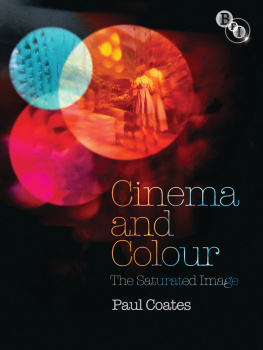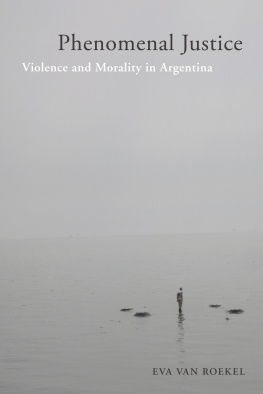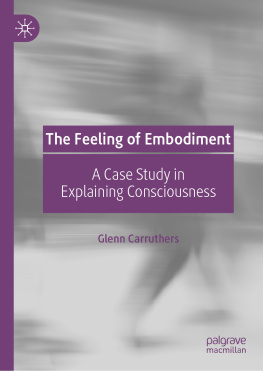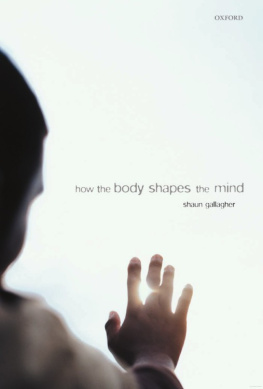Phenomenal Qualities:
Sense, Perception, and Consciousness
Paul Coates and Sam Coleman
(p.iv) 
- Great Clarendon Street, Oxford, OX2 6DP,
- United Kingdom
- Oxford University Press is a department of the University of Oxford.
- It furthers the University's objective of excellence in research, scholarship,
- and education by publishing worldwide. Oxford is a registered trade mark of
- Oxford University Press in the UK and in certain other countries
- the several contributors 2015
- The moral rights of the authors have been asserted
- First Edition published in 2015
- All rights reserved. No part of this publication may be reproduced, stored in
- a retrieval system, or transmitted, in any form or by any means, without the
- prior permission in writing of Oxford University Press, or as expressly permitted
- by law, by licence or under terms agreed with the appropriate reprographics
- rights organization. Enquiries concerning reproduction outside the scope of the
- above should be sent to the Rights Department, Oxford University Press, at the
- address above
- You must not circulate this work in any other form
- and you must impose this same condition on any acquirer
- Published in the United States of America by Oxford University Press
- 198 Madison Avenue, New York, NY 10016, United States of America
- British Library Cataloguing in Publication Data
- Data available
- Library of Congress Control Number: 2014960245
- Printed and bound by
- CPI Group (UK) Ltd, Croydon, CR0 4YY
- Links to third party websites are provided by Oxford in good faith and
- for information only. Oxford disclaims any responsibility for the materials
- contained in any third party website referenced in this work.
Dedication
(p.v) To Tigran and Joanna Coates
and
To Mike and Cinny Coleman
(p.vi) (p.vii) Acknowledgements
This book is the fruit of the Phenomenal Qualities Project, an investigation into the nature of phenomenal qualitiesfrom a number of different perspectivesthrough a series of seminars, workshops, and conferences organized over several years between 200914 thanks to a generous award by the Arts and Humanities Research Council, to whom we would like to express our gratitude. The papers in this collection derive from the Projects final conference that took place at the University of Hertfordshire in Hatfield, UK in 2012. Also included is a paper by David Rosenthal, who contributed to one of the earlier conferences. The overall Project attracted widespread interest and support, and we would like to take this opportunity to thank everyone involved for their enthusiasm and lively contributions, all of which helped to make it such a success.
We would like to acknowledge the support of the Institute of Philosophy at Senate House, University of London, which, through Barry Smith, kindly hosted three of our one-day conferences. We are also grateful to the two anonymous referees for excellent advice on the general form of the collection as well as on individual papers, and likewise to Peter Momtchiloff at OUP, whose warm encouragement of the Phenomenal Qualities Projectfrom the outset and support throughout publication have been much appreciated. Thanks are due also to David Chalmers and Galen Strawson for advice on the introduction.
We owe a particular debt to Jenefer Coates for the invaluable editing of the whole volume, and to Florence Curtis for preparing a first-rate index.
(p.xi) List of Contributors
PAUL COATES
is Professor Emeritus of Mind and Metaphysics, Department of Philosophy, University of Hertfordshire, and Principal Investigator of the AHRC Phenomenal Qualities Project.
SAM COLEMAN
is Senior Lecturer, Department of Philosophy, University of Hertfordshire, and Chief Co-Investigator of the AHRC Phenomenal Qualities Project.
OPHELIA DEROY
is Senior Researcher, Centre for the Study of the Senses, and Associate Director of the Institute of Philosophy, School of Advanced Study, London University.
PHILIP GOFF
is Lecturer in Philosophy, Liverpool University, and was Post-Doctoral Researcher in the AHRC Phenomenal Qualities Project.
MICHAEL MARTIN (M. G. F. MARTIN)
is Professor of Philosophy at University College, London University, and Mills Adjunct Professor, Department of Philosophy, University of California, Berkeley.
MICHELLE MONTAGUE
is Associate Professor of Philosophy, University of Texas at Austin.
JOHN M. NICHOLAS
is Professor Emeritus, Department of Philosophy, and Faculty Member, Rotman Institute of Philosophy, Western University, Ontario.
DAVID PAPINEAU
is Professor of Philosophy at Kings College, London University and at the Philosophy Program, Graduate Center, City University of New York.
RONALD A. RENSINK
is Professor in the Departments of Psychology and Computer Science, University of British Columbia.
HOWARD ROBINSON
is University Professor, Department of Philosophy, Central European University, Budapest; Senior Fellow, Rutgers Center for the Philosophy of Religion, New Brunswick; and Recurrently Visiting Scholar, Fordham University, New York.
DAVID ROSENTHAL
is Professor of Philosophy and Coordinator of Cognitive Science, Graduate Center, City University of New York.
GALEN STRAWSON
is holder of the Presidents Chair in Philosophy, University of Texas at Austin.
(p.xii) MICHAEL TYE
is the Dallas TACA Centennial Professor in Liberal Arts, Department of Philosophy, University of Texas at Austin.
Very sadly, one of our contributors, JONATHAN LOWE (E. J. LOWE), did not live to see this volume appear in print. He was Professor of Philosophy at Durham University, and will be dearly missed by all who knew him.
Introduction
The Nature of Phenomenal Qualities
Paul Coates
Sam Coleman
Phenomenal Qualities: Preliminaries
You are at this moment conscious of phenomenal qualities. In reading these words you are seeing black shapes against a white field, or you are hearing the sounds of the words being read aloud, or perhaps feeling them on a page of braille. Whichever way, there are certain qualitative features present to you in your experiencethe colours and shapes associated with the written text, or the particular auditory qualities arising when the words are spoken aloud, or the lumpy texture of the braille characters. Perceptual experiences of these kindsvisual, auditory, tactileare paradigmatic bearers of phenomenal qualities. Plausibly, several other sorts of conscious experience also possess them. Phenomenal qualities thus feature in much (if not all) of human mentality, and provide the immediate basis of a good deal of what goes on in daily life (for instance, the purchase of foods on account of their taste). Yet, for reasons soon to be broached, ascertaining the precise nature of phenomenal qualities, as well as their exact place in the structure of the world, has proved very difficult. The chapters in this volume, one way or another, all address these difficulties, which we explicate in outline form below.










